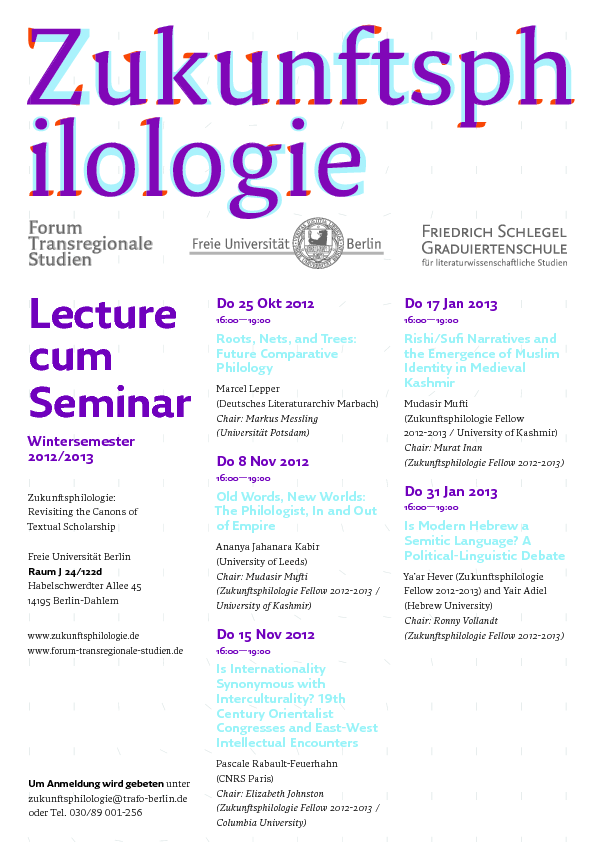Abstract
Can comparative philology, a discipline tainted by its multiple associations with colonialism, Orientalism, and Aryanism in India and Europe, not to speak of its old-fashioned aura, be rescued for contemporary times? Why would we even want to embark on such a process? This paper seeks to recuperate the discipline of philology by suggesting alternative readings of both its imperial history and the continuing hold of philology on postcolonial imaginations from Seamus Heaney to Amitav Ghosh. Using a methodology that mobilises theorisations of ambiguity, third-space-ism, and melancholia as a radical rather than debilitating force, such an endeavour also reconstructs how comparative philology, the central discipline of the long nineteenth century, developed scholarly technologies that articulated concretely the relationship between the modern subject and its pre-modern past, and, in doing so, created a meta-epistemology not only for European subjectivities but for Empire at large. Through such excavations, that explore the complex relationship between old words and new worlds, philology as a discipline itself might be decolonised, and a new model for modernity, bringing together India and Europe in the intellectual webs of Empire, may be proposed.
Old Words, New Worlds: The Philologist, In and Out of Empire
Ananya Jahanara Kabir (University of Leeds); Chair: Mudasir Mufti (Zukunftsphilologie Fellow 2012-2013/ University of Kashmir)
Freie Universität Berlin, Raum J24/122d, Habelschwerdter Allee 45, 14195 Berlin

In the subsequent seminar following the lecture, we will test some of these propositions through a re-examination of one of the foundational texts of comparative philology, Sir William Jones's Third Anniversary Discourse on the Hindus (1786).
Background Reading:
- Jones, William: Third Anniversary Discourse on the Hindus, pp 1- 2,
and 24-46
Ananya Jahanara Kabir’s MPhil (1994) in Old English (Anglo-Saxon) and Old Norse from the University of Oxford, followed by a PhD (1998) from the Department of Anglo-Saxon, Norse and Celtic at the University of Cambridge, trained her in Philology and the Old Germanic languages; her move to postcolonial approaches to Humanities scholarship allowed her to think critically about Philology's relationship with nationalism, Empire and modernity, and that relationship's repercussions on knowledge production. Over the past decade she has worked on what she terms 'imperial medievalism', in which the philologist and the German intellectual tradition play an important part. This project sits within her wider interests in the cultural forms taken by modernity and her commitment to working with multiple languages and across disciplinary boundaries.

